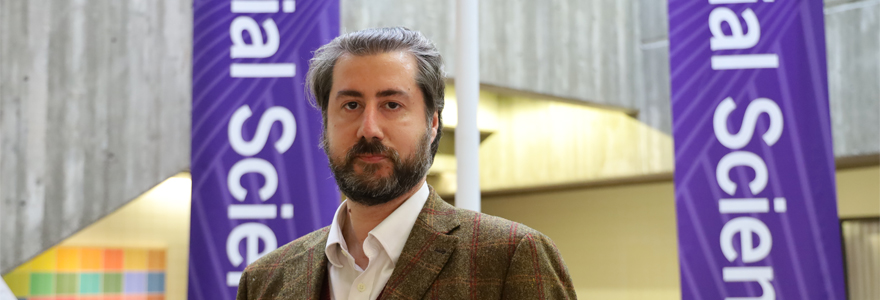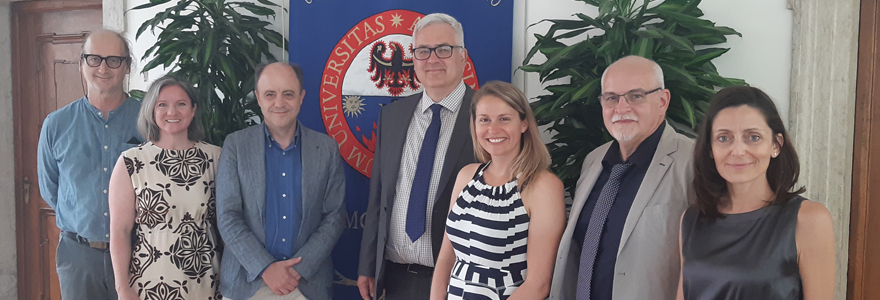News and Updates
Contact
Faculty of Social Science
Social Science Centre
Room 9438
Western University
T. 519-661-2053
F. 519-661-3868
E. social-science@uwo.ca
Western Social Science hosts Giueseppe Veltri
November 22, 2022
For two weeks in November, the Faculty of Social Science at Western has hosted Giuseppe Alessandro Veltri, as part of the first steps to establish collaborative relationships between Western and Italy’s top ranked department of Sociology.
In June, Dean Harney and four scholars from Western visited the University of Trento. The Department of Sociology and Social Research in Trento voted last week to approve an MOU between the two institutions, setting the stage for further exchanges.
Veltri, Full Professor in Computational Social Science & Cognitive Sociology at the University of Trento, is a social scientist with a background in psychology and sociology, interested in cognitive sociology and methodology. He is part of a team building a computational social science research centre at Trento.
Founded in 1962, the University of Trento was home to the first Faculty of Sociology in Italy. It has a prominent role in the social sciences within Italy, with a reputation for introducing innovation in both theory and methods. In addition to its leading role within the country, Trento has a recognised tradition of having an international outlook with long-standing institutional relationships with many universities across the globe.
“I am thrilled to visit Western after meeting several interesting colleagues that visited us at the University of Trento in Italy,” said Veltri. “My visit is to explore opportunities in collaboration across the institutions further, both in terms of student exchange and joint research opportunities.”
Trento has an extensive collaboration and joint programs with other European universities and is interested in expanding its range of collaboration to North America.
“Canada, more specifically, Western, offers the potential for a great partnership because of the values and reputation of your institution,” said Veltri.
Veltri’s recent research has focused on vaccine hesitancy, and how to increase willingness to receive the COVID-19 vaccine, among populations in eight European countries. While at Western he delivered two talks related to this research, one hosted by the Faculty of Social Science, the other hosted by the Rotman Institute of Philosophy.
In the first talk, he examined how to use computational social science in ways to address increasing variability and heterogeneity among study participants, when participants are drawn from larger national and international samples.
In the second talk, he considered the sociological and psychological aspects of vaccine hesitancy, including how perceived risk and trust frame individuals' vaccine acceptance.
Outside of his talks, Veltri met with faculty members from many of the departments within Social Science to discuss computational approaches to research.
 Scholars from Western University visiting the University of Trento
Scholars from Western University visiting the University of Trento

